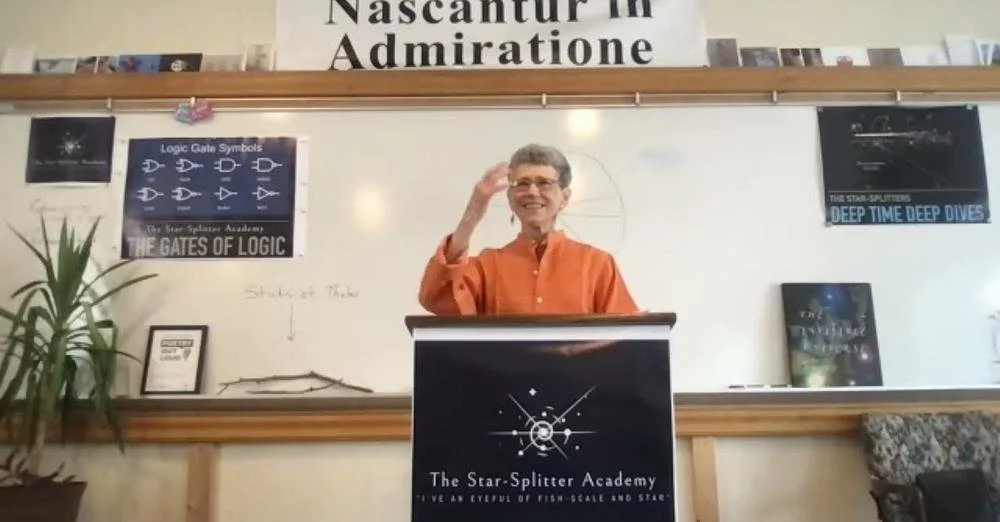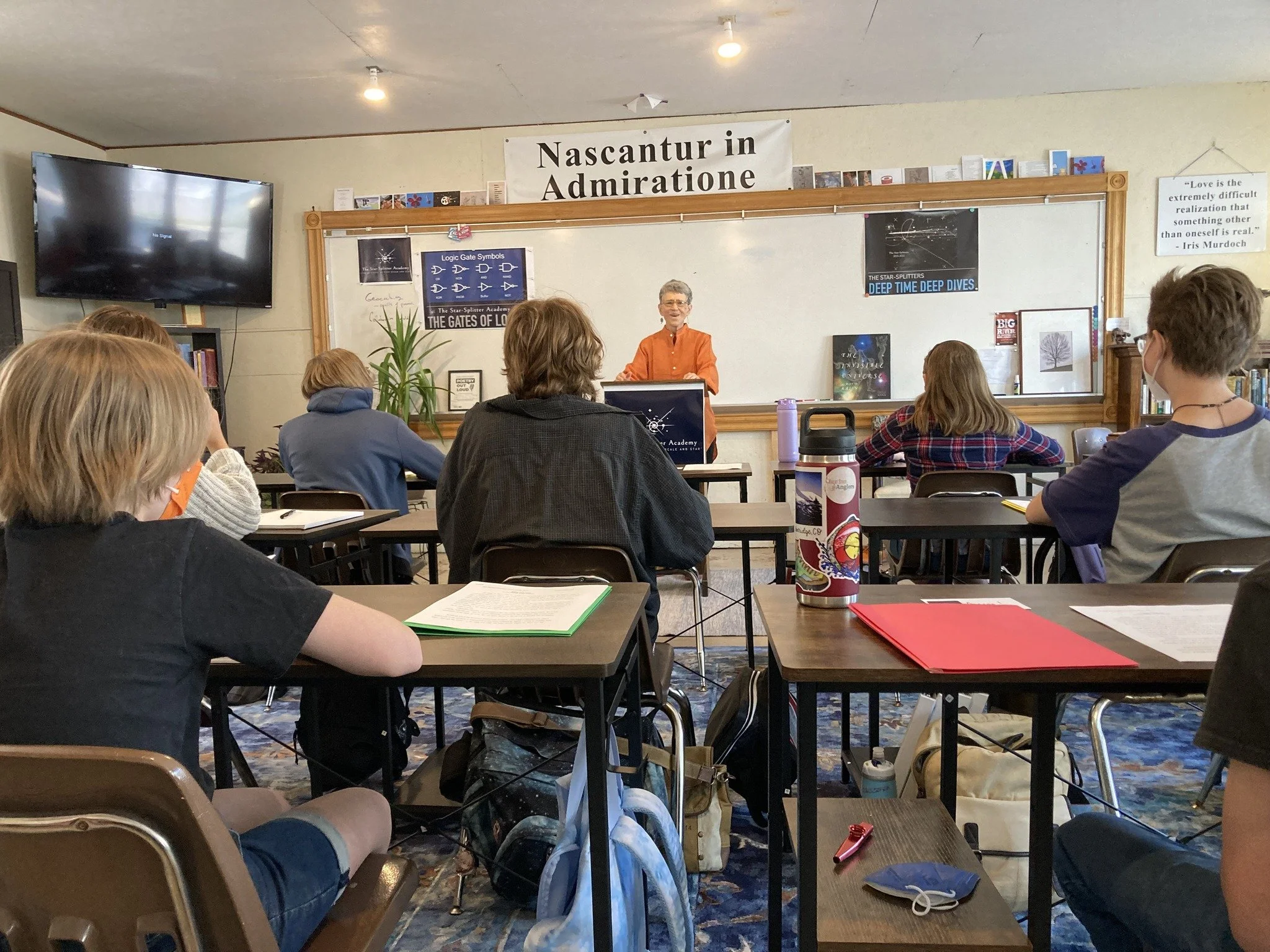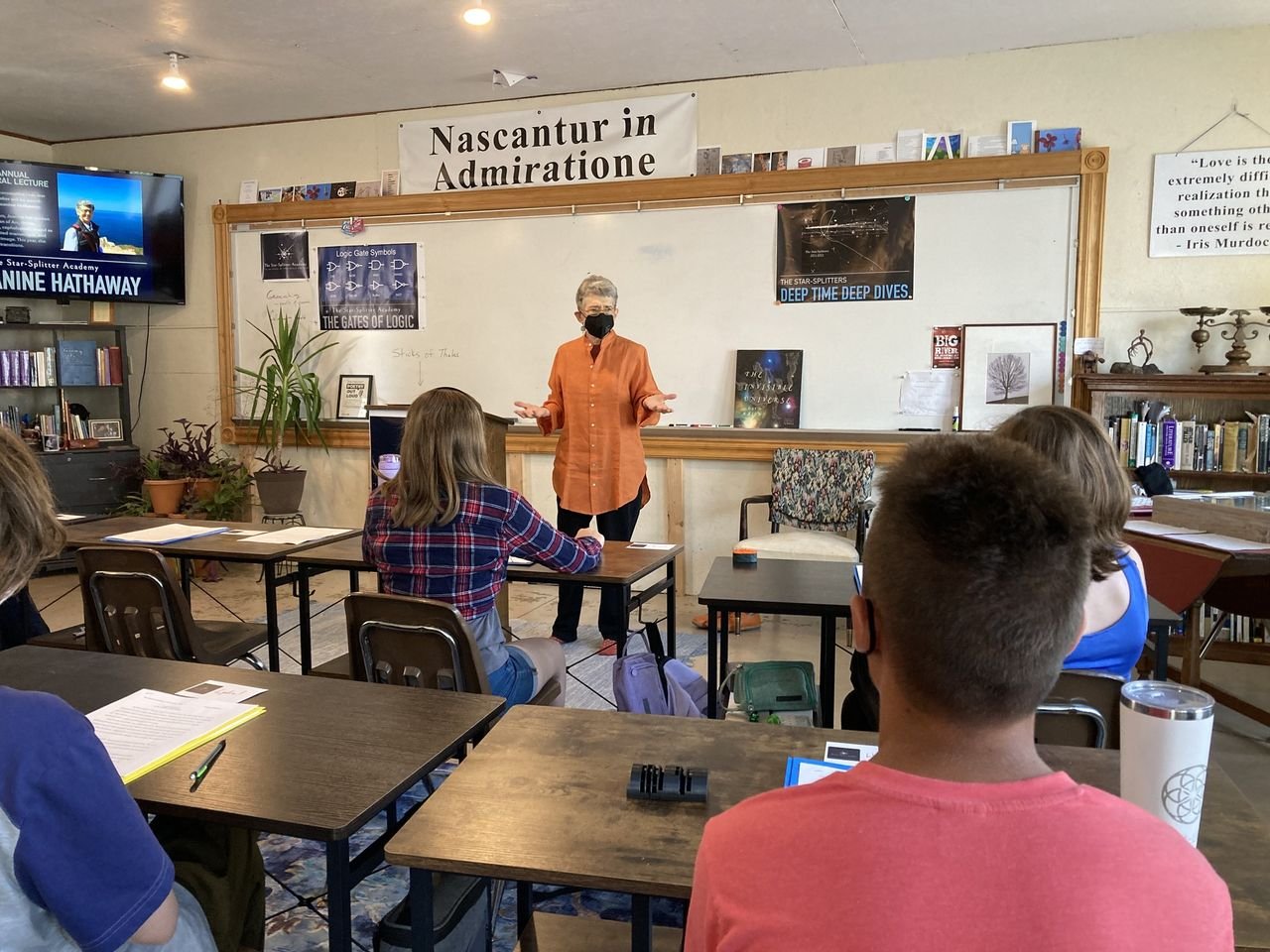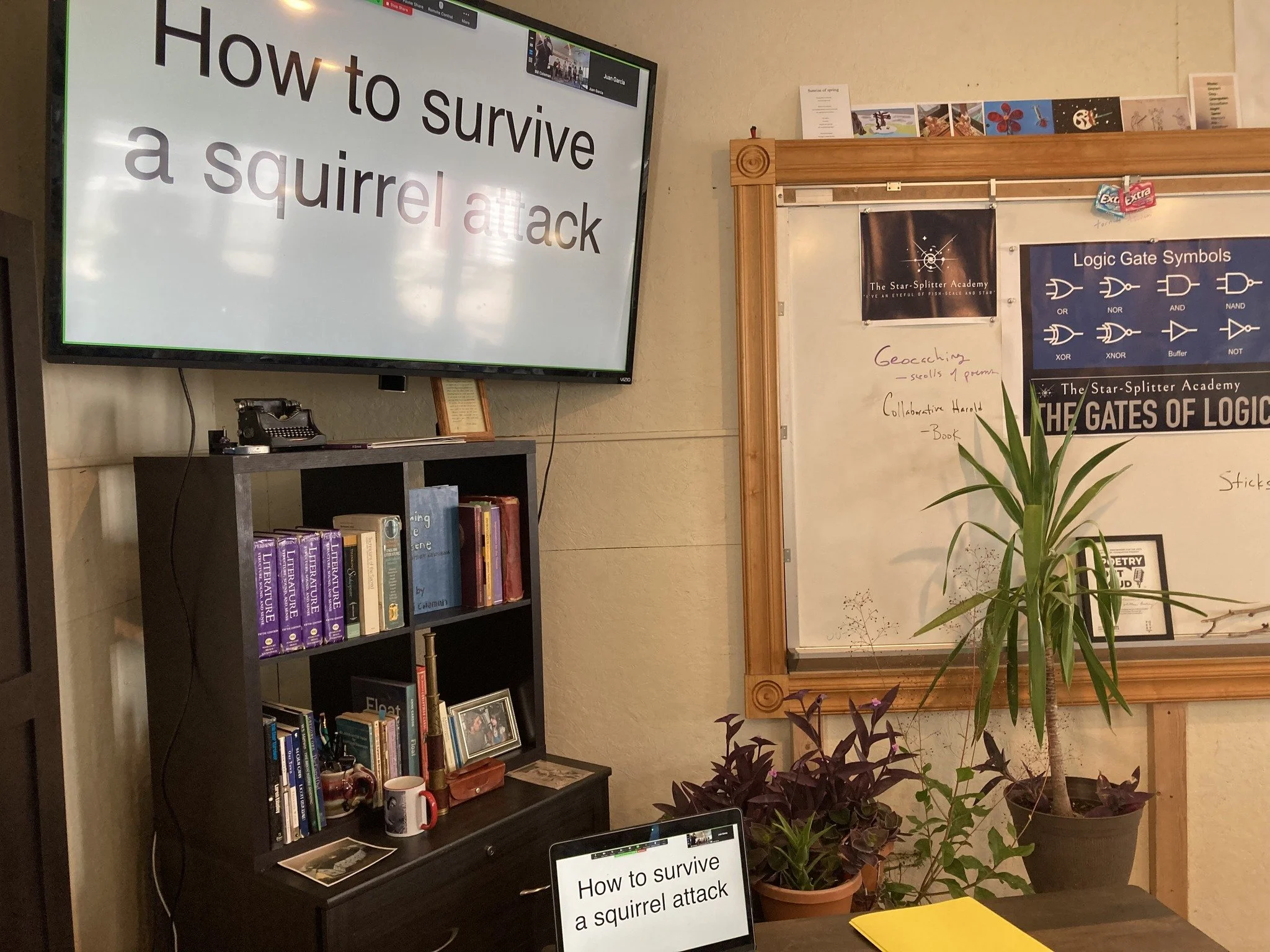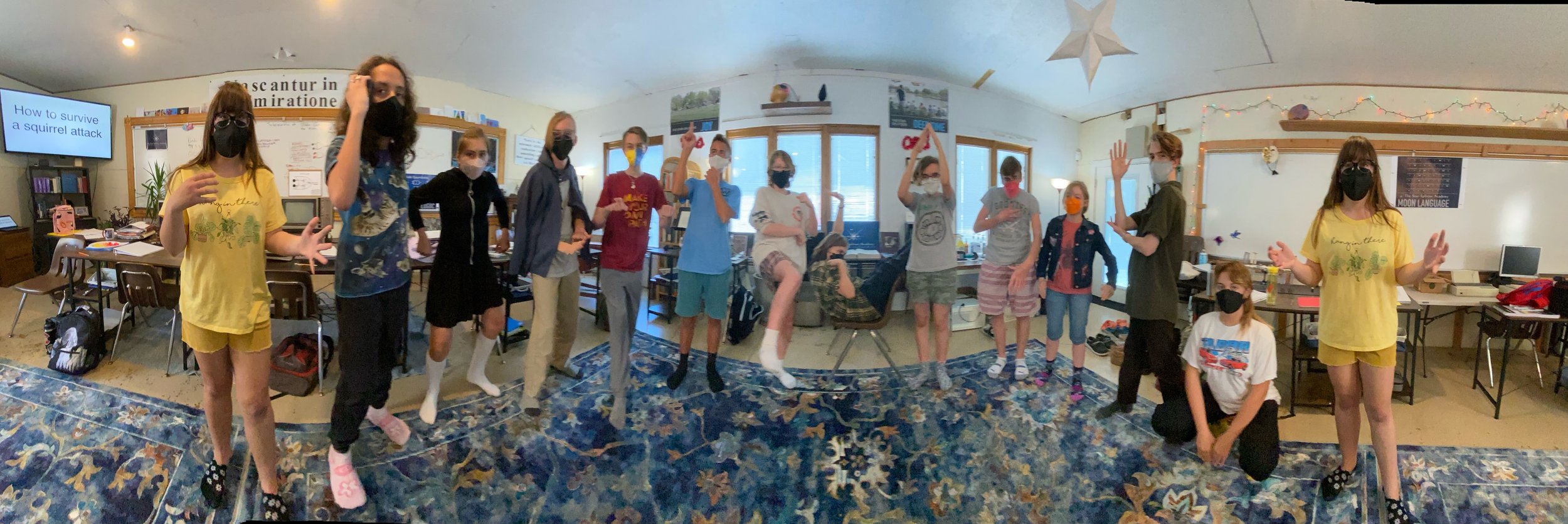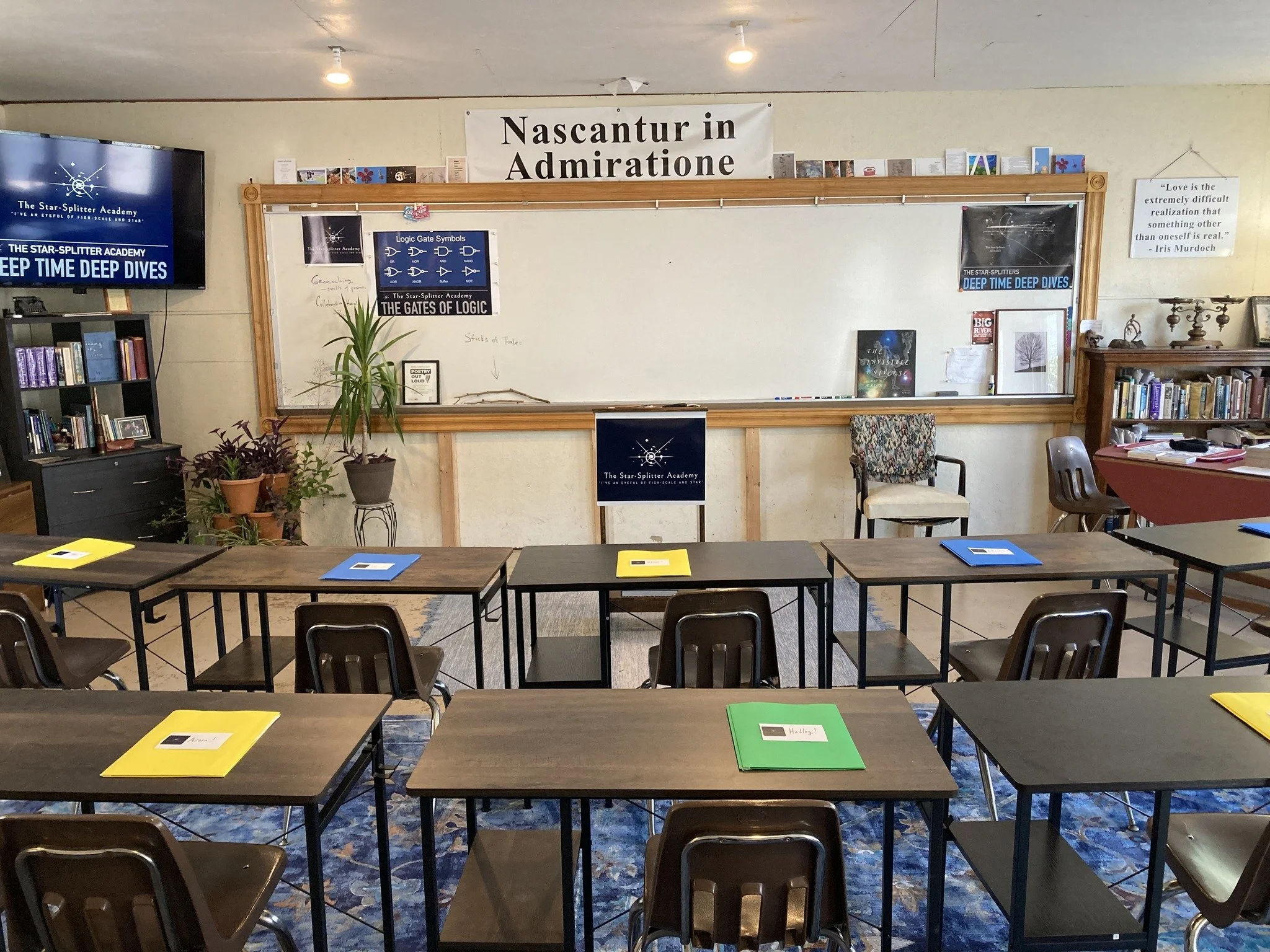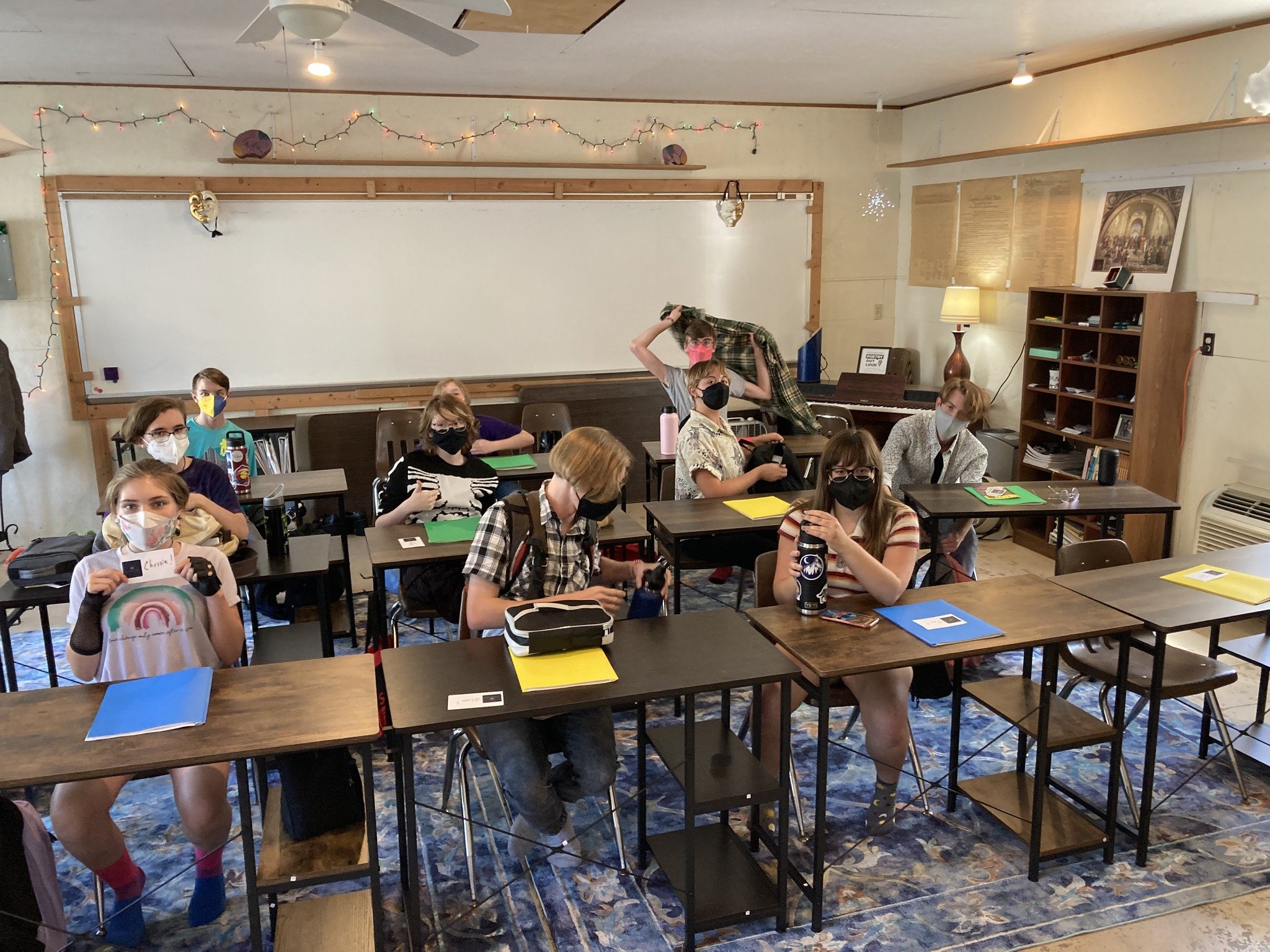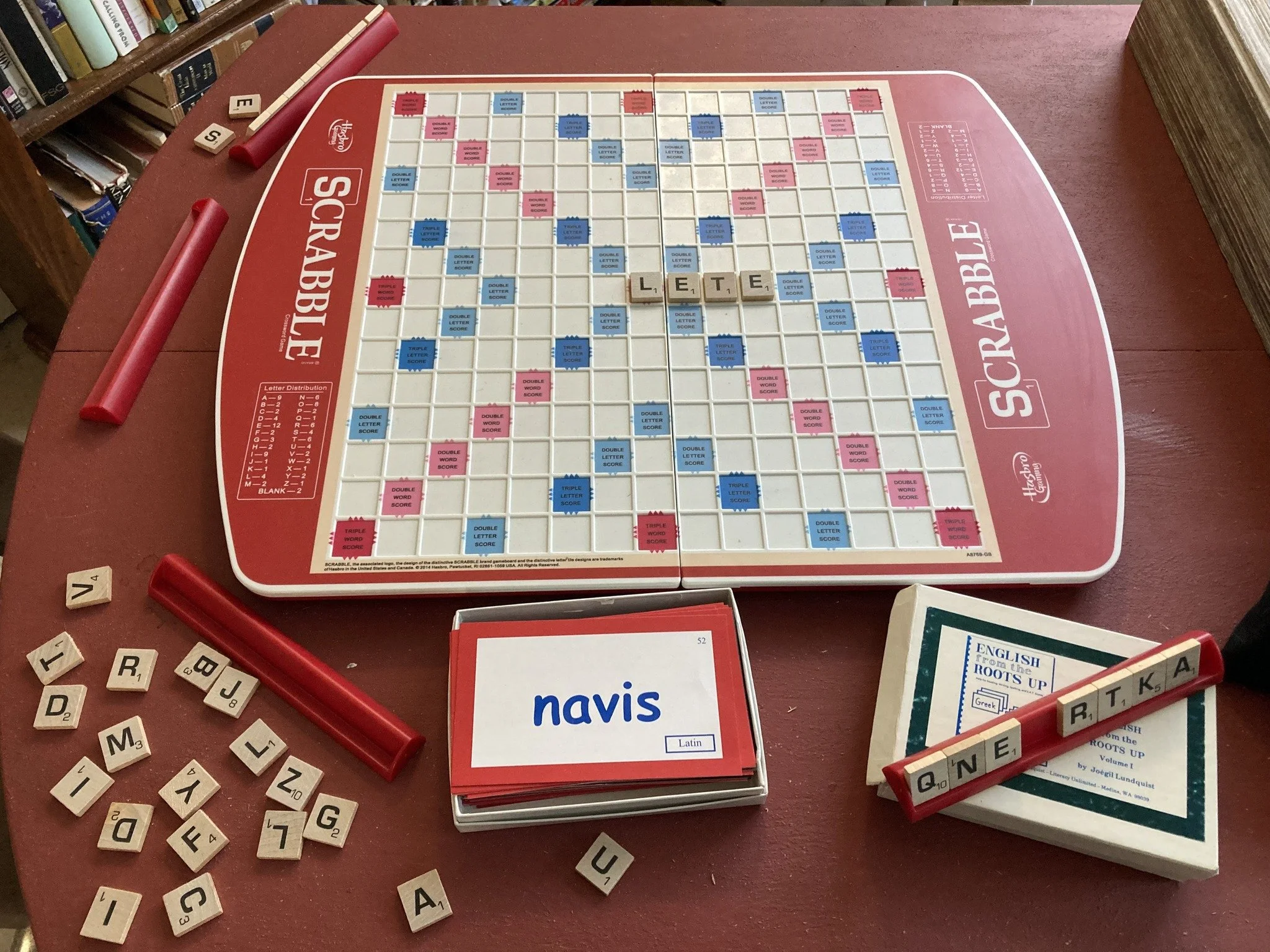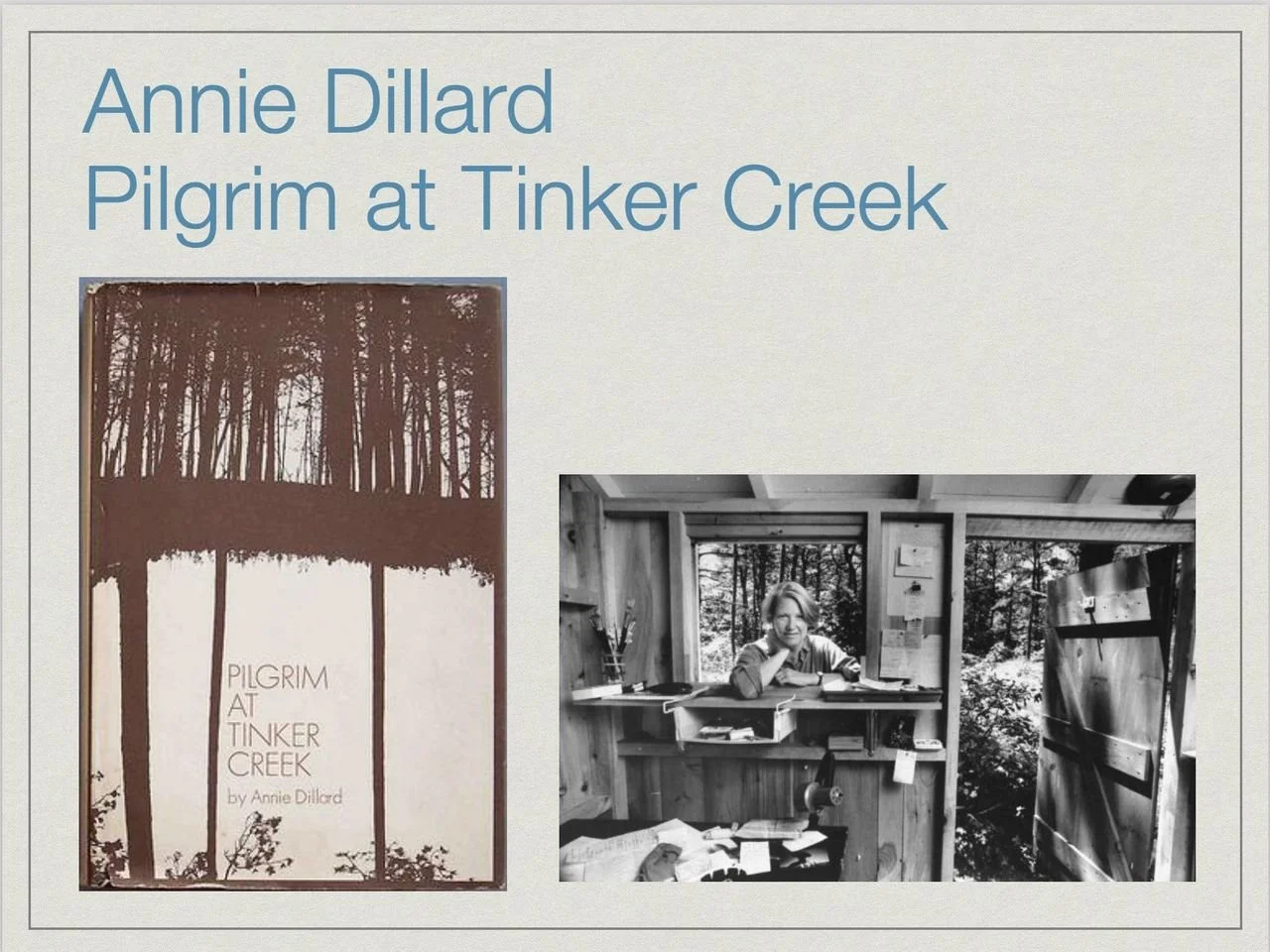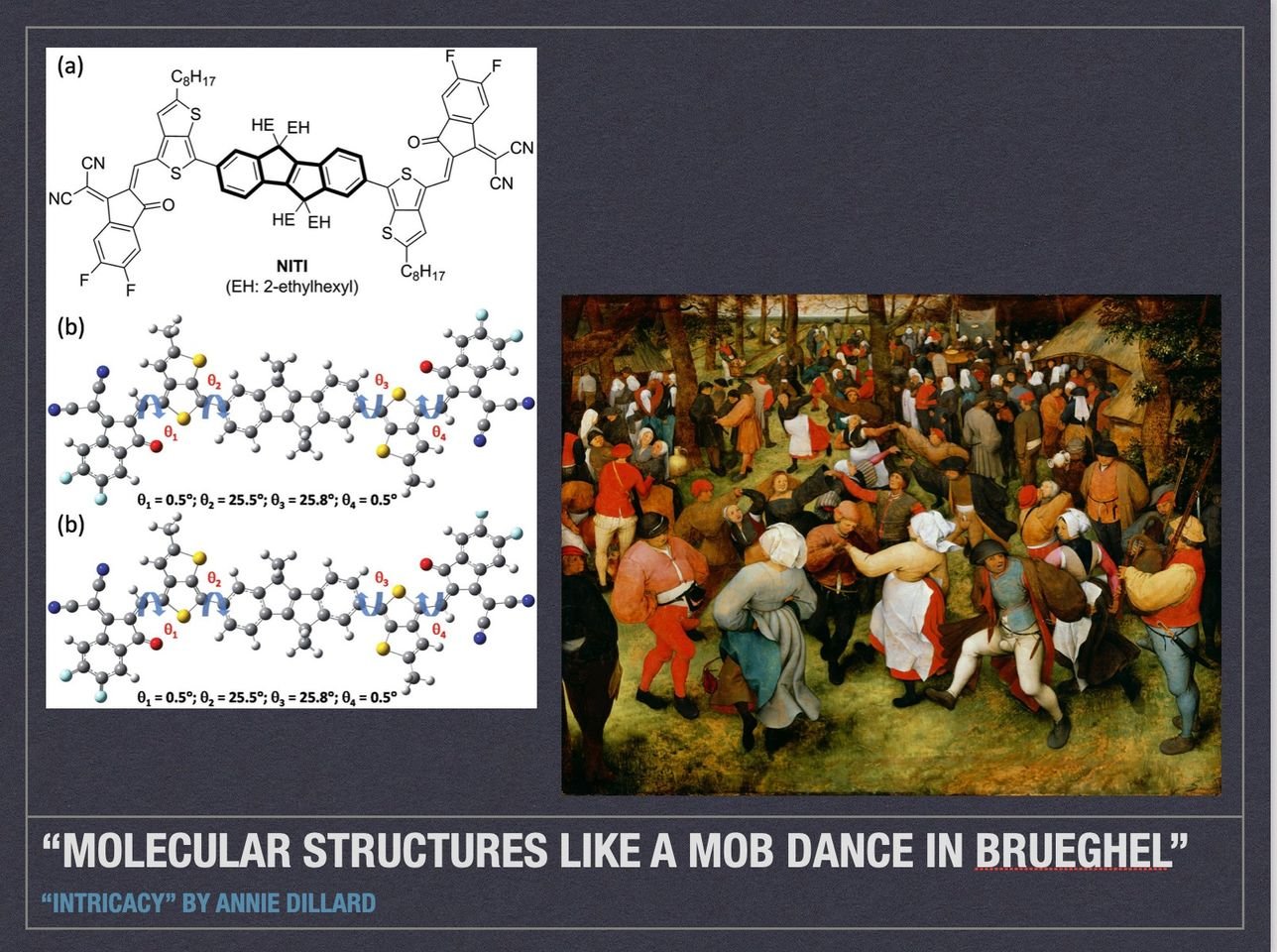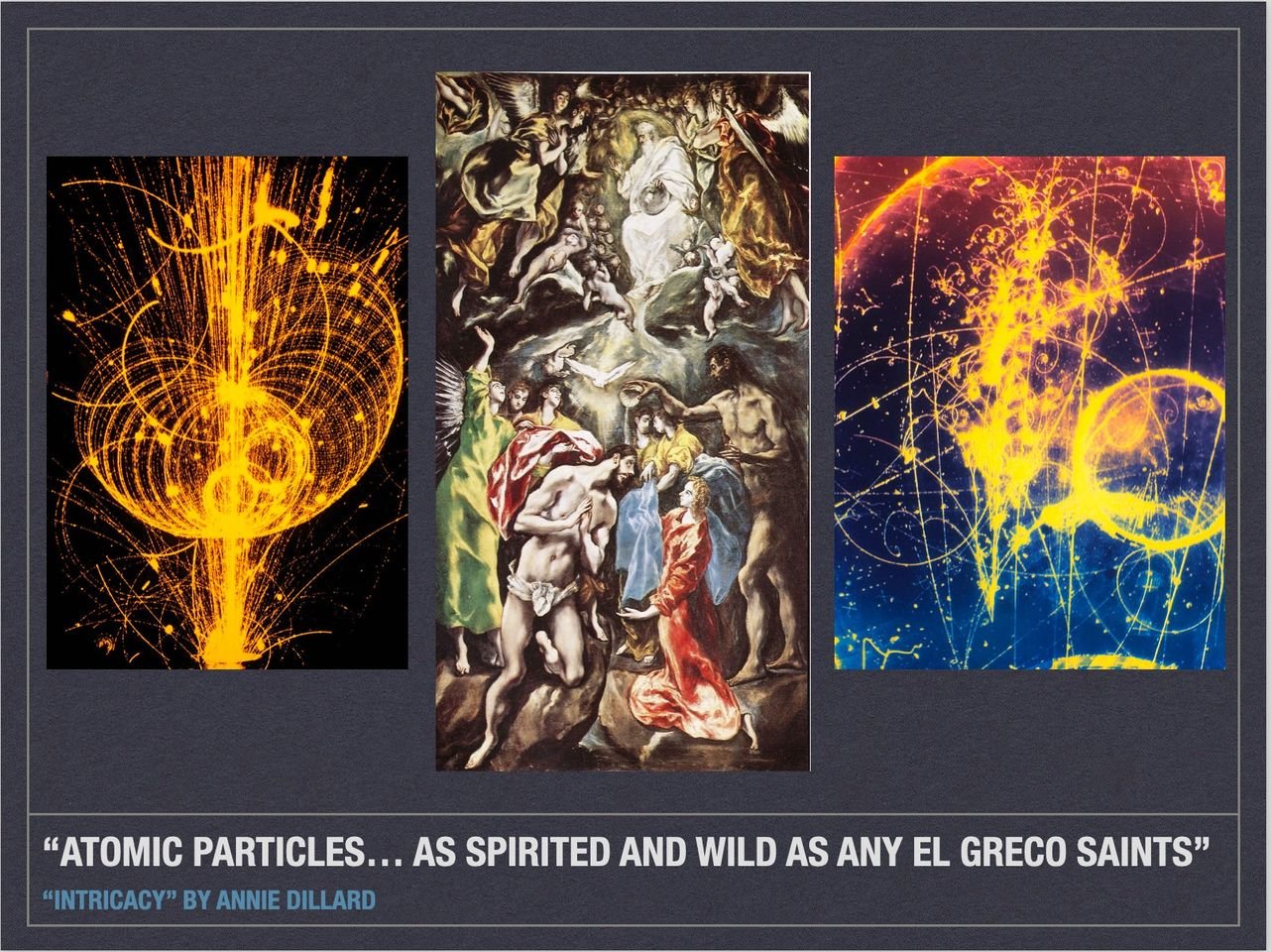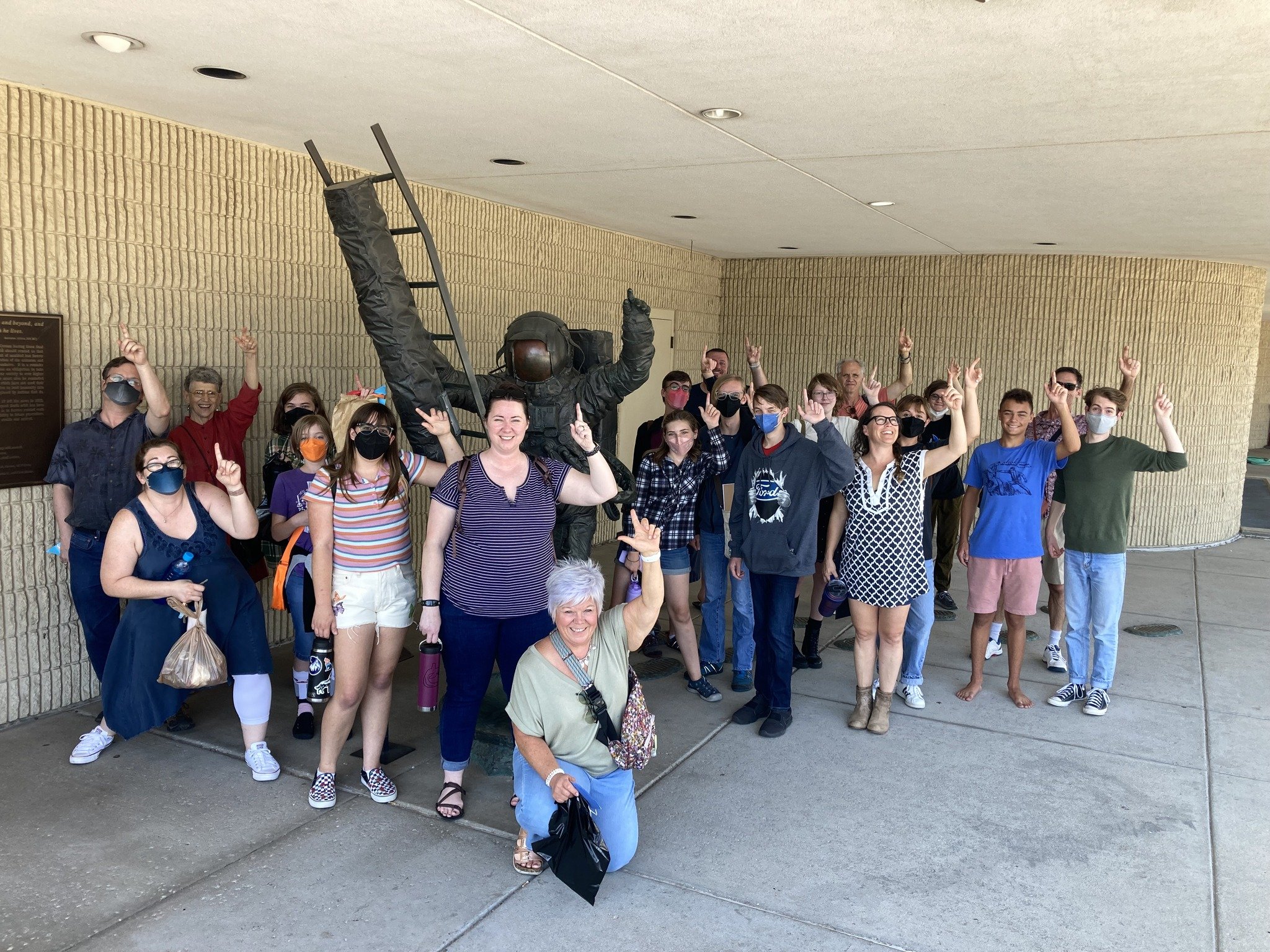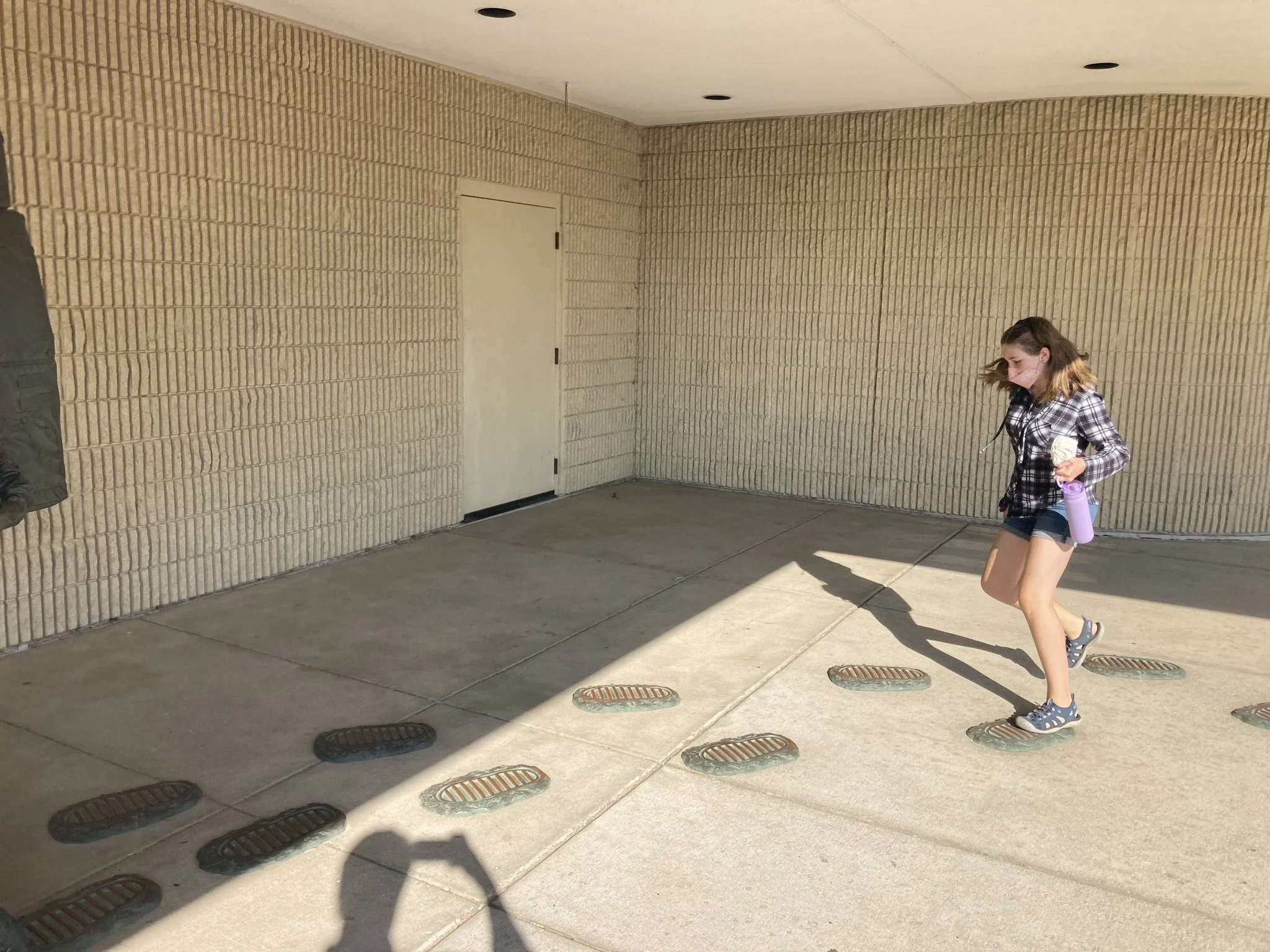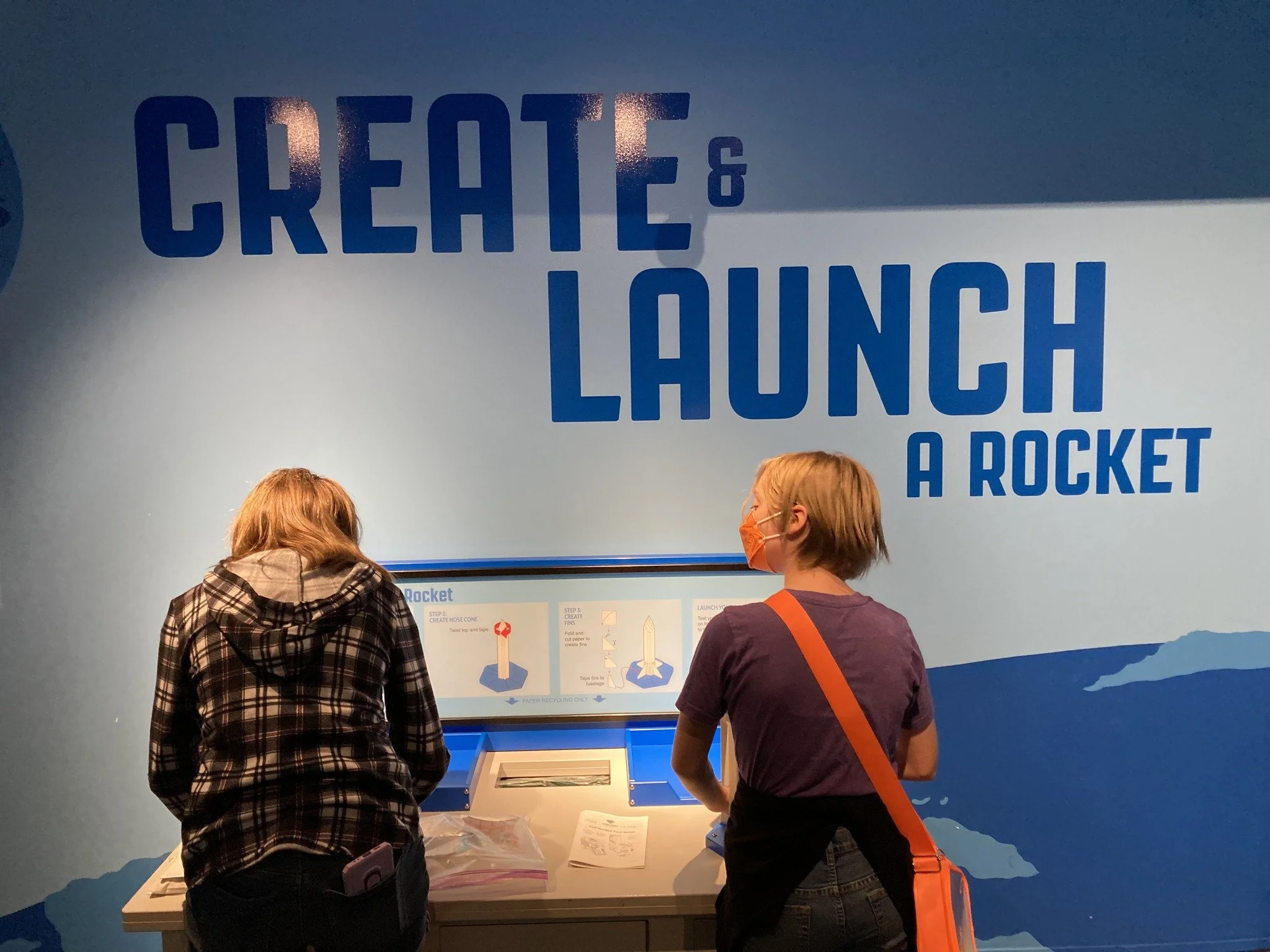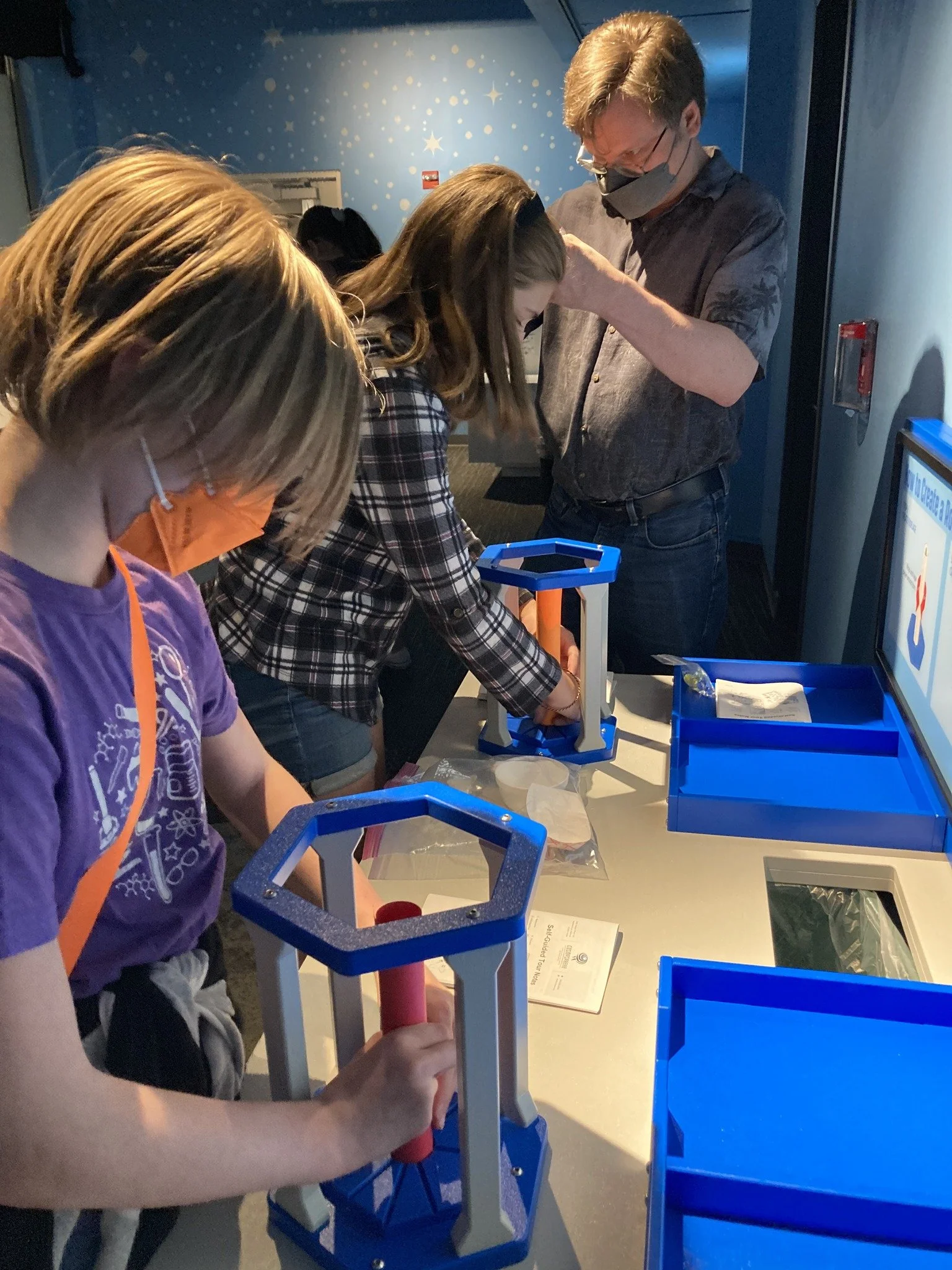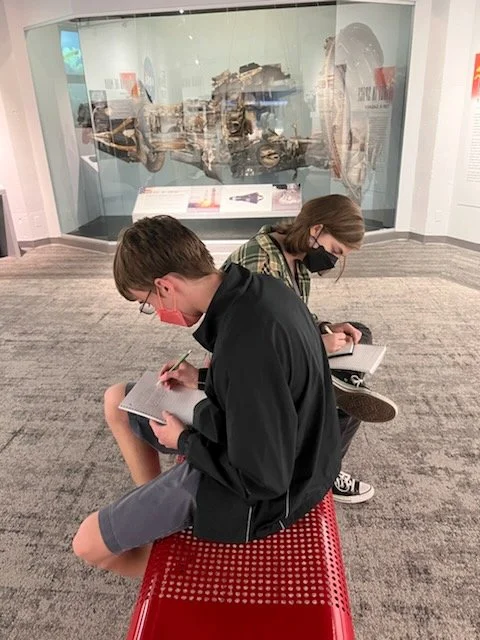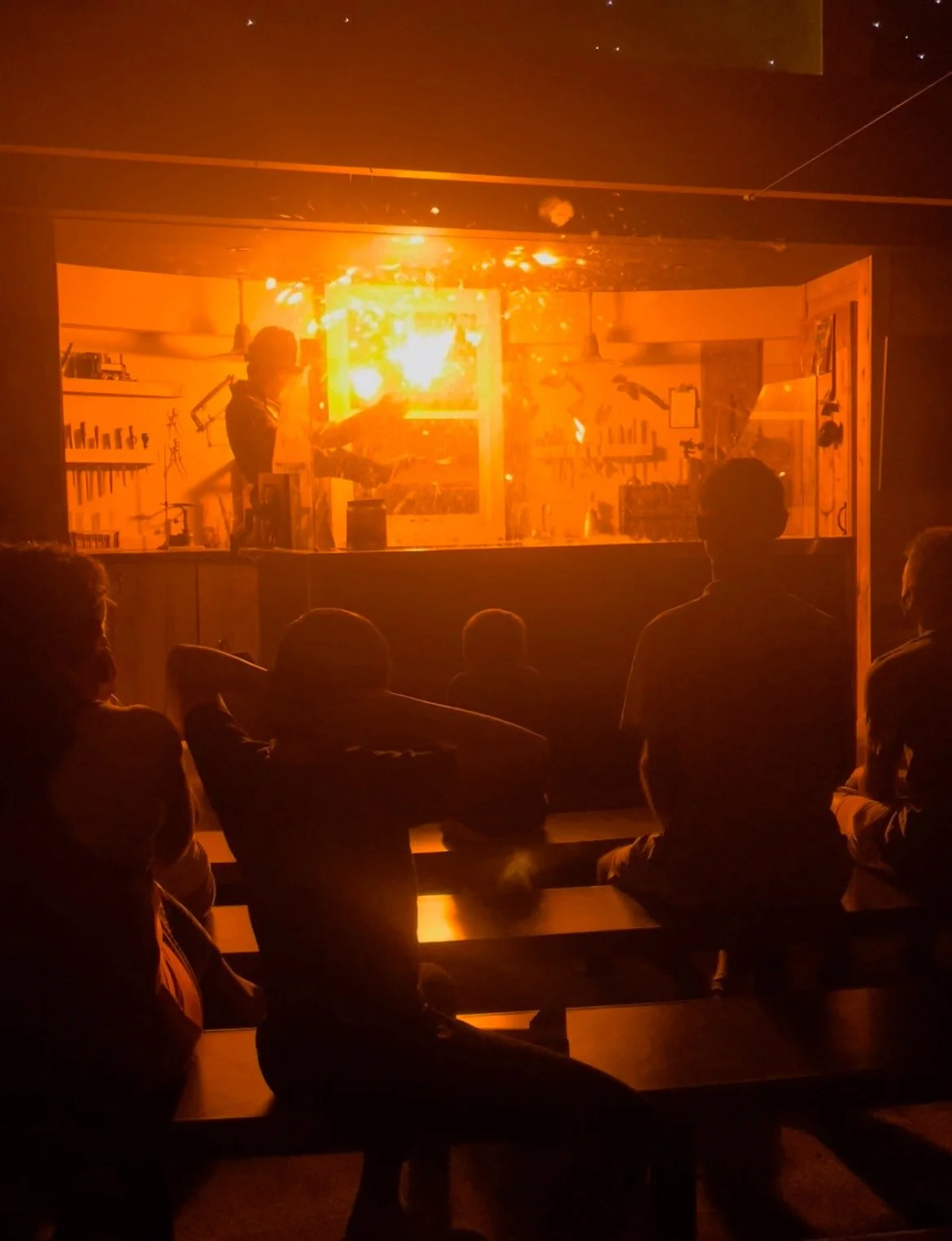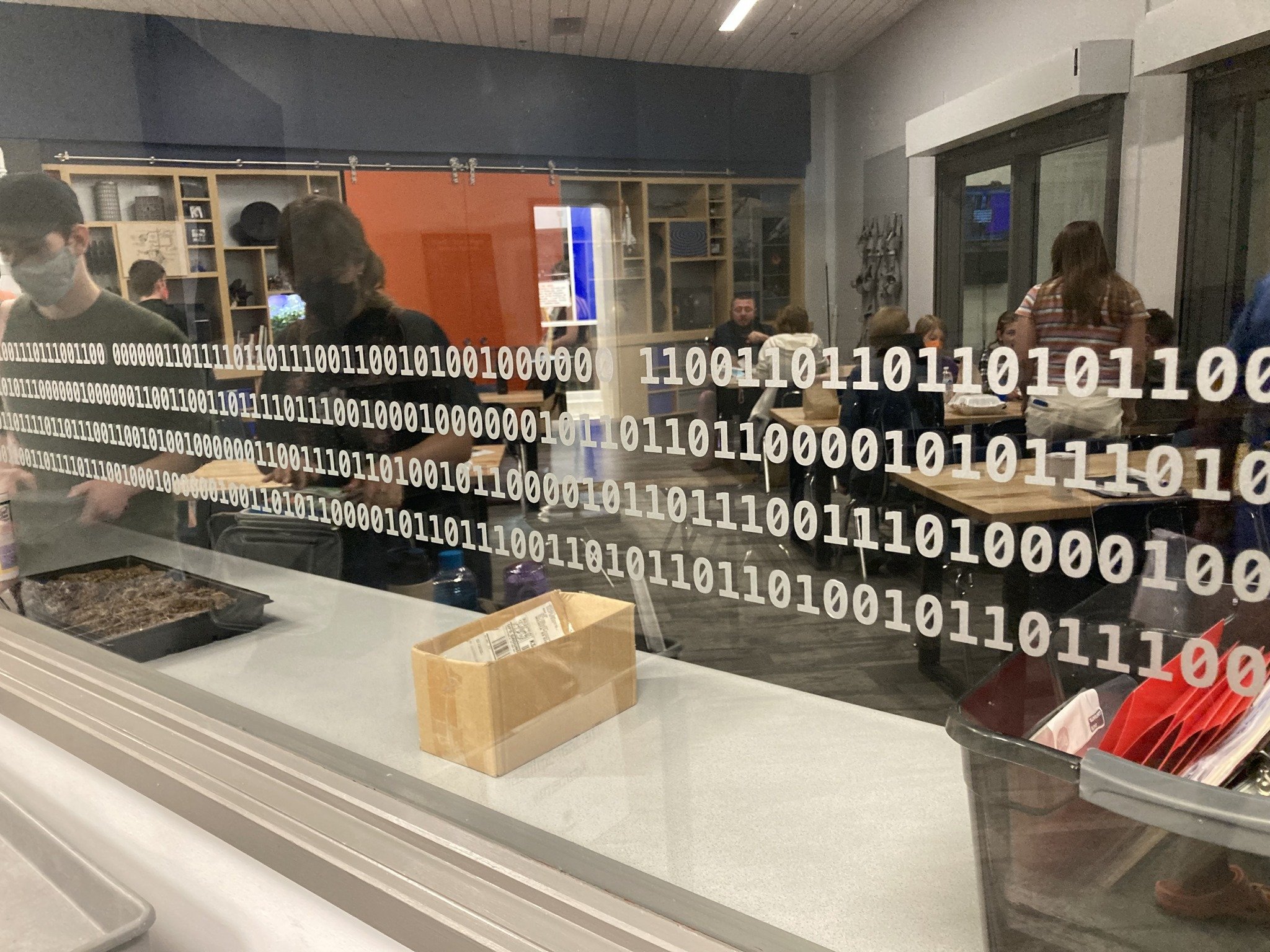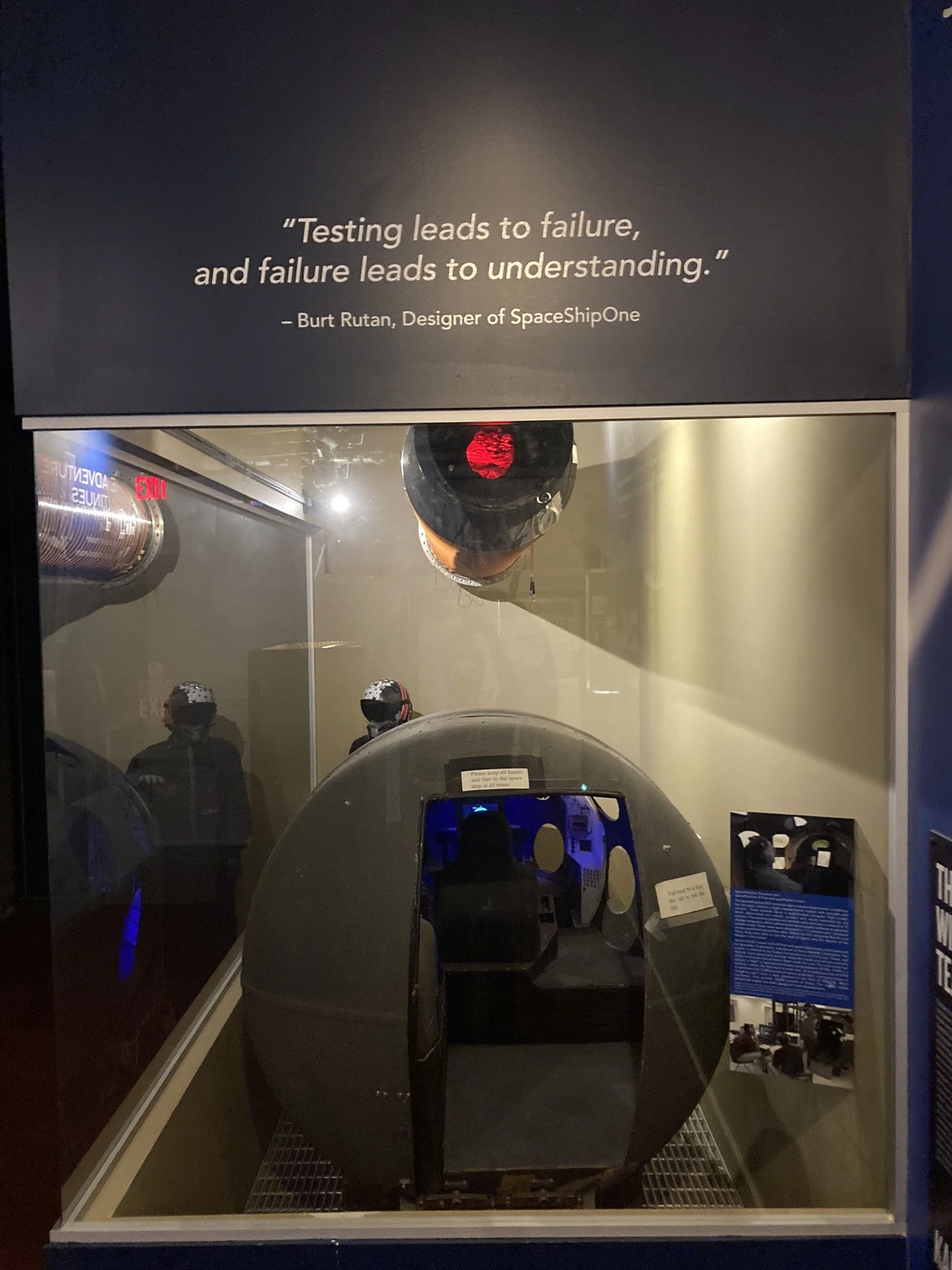Orientation 2022-2023
T
On Thursday morning, award-winning poet and teacher Jeanine Hathaway delivered the inaugural talk for The Star-Splitter Academy’s school year. (A link to a pdf of the talk is in the comments section below.) In previous years, Jeanine has spoken to us about Joan of Arc, rhinos, kaleidoscopes, cephalopods, sound as touch, illuminated manuscripts, and the act of pilgrimage. This year, she contemplated transitions, in a talk entitled "Mind the Gap," which was followed by a conversation with the students. *** Jeanine Hathaway currently enjoys Professor emerita status from Wichita State University, having taught creative writing and literature there. She was a poetry mentor in Seattle Pacific University’s MFA Program. Hathaway is the author of the autobiographical novel Motherhouse (1992), the 2001 Vassar Miller Poetry Prize-winning The Self as Constellation (2002), and a chapbook, The Ex-Nun Poems (2011). Her most recent collection of poetry is Long After Lauds, published in 2020 by Slant Books.
"Expanded curiosity is so expansive that our sense of time and space dilate." If you ever want to inspire a group of bright young people, invite the consummate liberal artist Jeanine Hathaway to your school. For the eighth consecutive year, award-winning poet and teacher Jeanine Hathaway has delivered our inaugural talk of the year. Jeanine has spoken to us about Joan of Arc, rhinos, kaleidoscopes, cephalopods, sound as touch, illuminated manuscripts, and the act of pilgrimage. This year, she contemplated transitions in a talk entitled "Mind the Gap," which was followed by a conversation with the students. “Every good story begins in medias res," Jeanine reminded us. "There’s the part that’s Over. There’s the part that’s Next. In the middle gapes a gap. 'Mind the gap' because the gap is the Now. The more we mind it, give attention—surrender—to the Now, the greater it seems to swell. The greater it seems imaginatively as we attend to what’s possible, perhaps especially to what’s improbable.” Thank you, Jeanine, for helping the Star-Splitters attend to possibility!
Today the Star-Splitters improvised a Ted talk on a very important topic. (The TED-talk game involved all the students creating a single, informative talk. Each student is presented with a random image on the screen, which they have to immediately incorporate into the talk's main theme, after first summarizing all of the previous points that have been made by other students. The game exercises the skills of active listening, connecting parts to a unified whole, and how to form summaries of information.)
Our first-of-the-year class photo! Each Star-Splitter is posed as an iconic representation of their part of the thirteen-part Ted talk we improvised during orientation week (the subject: How to Survive a Squirrel Attack). (In the TED-talk improv game, students create a single, informative talk. Each Star-Splitter is presented with a random image on the screen, which they have to immediately incorporate into the talk's main theme, after first summarizing all of the previous points that have been made by other students. The game exercises the skills of active listening, connecting parts to a unified whole, and how to form summaries of information.)
Opening Day at the Star-Splitter Academy We read Iris Murdoch, who reminded us that love is the discovery of reality ("Love is the extremely difficult realization that something other than oneself is real.") Then we read the rules for discourse put forth by peace studies professor Anatol Rapoport, the first of which is to restate another's opinion so clearly that they recognize themselves within it. And then we put those ideas into practice: we played improv games, a foundational activity of our school. By following the rules of play, improvisers learn how to seek common ground, even as they learn to more actively listen to others, and to feel the generative force of failure. On their best days, improvisers inhabit a space where “yes and” keeps the work of living in common; keeps everyone listening; keeps conversation exploratory rather than gladiatorial; in such a space, patterns of meaning are joyfully sought and “mistakes” considered precious gifts.
This morning we read the wondrous essay that gave our school its motto ("I've an eyeful of fishscale and star"): "Intricacy" by Annie Dillard, from A Pilgrim at Tinker Creek.
On Friday, parents and students embarked on our first annual Star-Splitter Academy Ad Astra Adventure, a start-of-the-year field trip in which, as with all our adventures, learning and wonder are one. This year, we traveled to the Kansas Cosmosphere, where we learned about the science that propels our exploration of space: we saw actual spacecraft, hardware, and spacesuits used in exploratory missions; a hands-on demonstration of rocketry presented in the style of Michael Faraday by a wonderful local music student named Jasper; then headed to the planetarium theatre, where we were immersed in the night sky--the visible constellations and deep-space nebulae and galaxies that can be seen in each season. When Orion, the constellation that figures prominently in the Frost poem that gives our school its name, emerged above us, our students couldn't help but cheer! Thank you, Kansas Cosmosphere, for being such great hosts!
